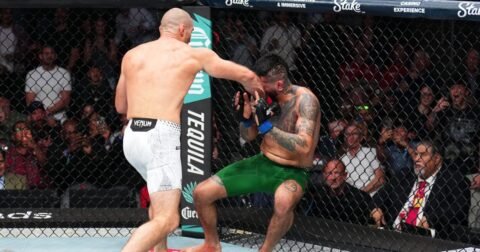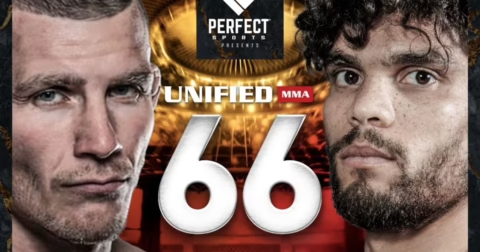UFC CEO Dana White has pointed to extreme wealth as the primary factor behind the career declines of two of the sport’s biggest icons: Conor McGregor and Khabib Nurmagomedov. White suggests that the massive financial rewards from their blockbuster fights—most notably McGregor’s $100 million payday against Floyd Mayweather—fundamentally altered their motivation, leading to McGregor’s prolonged absence and Khabib’s early retirement at age 32.
Dana White’s “Money Ruins Everything” Thesis
In a revealing interview, Dana White didn’t mince words when analysing the trajectories of his two biggest stars. “Money ruins everything,” the UFC CEO stated, pointing to the immense wealth accumulated by Conor McGregor and Khabib Nurmagomedov as the catalyst for their diminished fighting careers. White’s perspective highlights a fundamental tension in combat sports: the very financial success that fighters strive for can ultimately extinguish the competitive fire that drove them to the top.
For McGregor, the turning point was clearly the $100 million-plus earned from his 2017 boxing match with Floyd Mayweather. For Khabib, substantial financial security following his father’s passing, combined with his undefeated record, created the perfect conditions for walking away at his peak. White’s analysis suggests that once the financial pressure disappears, so too does the urgency that defines championship mentality.
Conor McGregor: The $100 Million Transformation
The Conor McGregor who returns to the UFC—potentially in 2026 after serving an 18-month anti-doping suspension—will be a fundamentally different fighter from the hungry contender who first captured championship gold. Since his life-changing payday against Mayweather, McGregor has fought only four times in seven years, winning just once against Donald “Cowboy” Cerrone.
White’s assessment implies that McGregor’s lifestyle transformation and business ventures, from Proper No. Twelve whiskey to numerous other enterprises have redirected the focus that once made him the most dangerous fighter in the sport. The extended layoffs, legal issues, and diminished training frequency all point to a fighter whose priorities have shifted dramatically since achieving financial freedom.
Khabib Nurmagomedov: The Walk-Away Champion
Khabib Nurmagomedov’s case presents a different but equally compelling narrative about wealth’s impact. Unlike McGregor, Khabib retired at the absolute pinnacle—undefeated and universally recognised as the best lightweight in the world. White acknowledges that the financial security Khabib achieved, particularly after his father’s passing, removed any necessity to continue fighting.
Where previous champions might have been compelled by financial need to extend their careers, Khabib had the luxury of honouring his mother’s wishes and walking away on his own terms. His continued business success and influence in Muslim countries since retirement have only reinforced that his decision was both financially and personally sustainable.
The Broader Implications for UFC’s Future
White’s comments reveal a significant concern for the UFC’s business model. If generational wealth leads to generational talents walking away in their prime, it challenges the promotion’s ability to build long-term stars. The cases of McGregor and Khabib represent two sides of the same coin: one fighter whose motivation diminished despite continuing, and another who left entirely because he could.
This dynamic may force the UFC to reconsider how it structures fighter compensation and career incentives. As White noted, the hunger that drives fighters from nothing to championships can be irreversibly altered once life-changing money enters the equation, potentially shortening the competitive lifespan of the sport’s biggest draws.
Conclusion: The Double-Edged Sword of Financial Success
Dana White’s analysis of McGregor and Khabib reveals an uncomfortable truth about combat sports. The financial success that represents the ultimate reward for a fighter’s sacrifice can also be the very thing that ends their competitive excellence. For McGregor, wealth changed his priorities; for Khabib, it enabled a clean break at his peak.
As the UFC moves forward, the legacy of its two most iconic modern fighters will serve as a case study in how extreme wealth impacts athletic motivation. Their stories underscore that in a sport defined by hunger and desperation, financial security might be the one opponent even champions cannot overcome.
Dana White on Money & Motivation: FAQ
What exactly did Dana White say about money ruining fighters?
White stated “Money ruins everything” in reference to how massive financial success diminished Conor McGregor’s motivation and enabled Khabib Nurmagomedov to retire early, suggesting wealth removes the hunger that drives elite fighters.
How much did Conor McGregor make against Floyd Mayweather?
McGregor earned approximately $100 million for his 2017 boxing match with Floyd Mayweather, a payday that Dana White identifies as the turning point in McGregor’s career motivation.
Why did Khabib retire so early, according to Dana White?
White believes Khabib’s financial security, combined with the emotional impact of his father’s passing, allowed him to retire at age 32 while still undefeated, as he no longer needed to fight for money.
Is Conor McGregor ever coming back to the UFC?
McGregor hopes to return in 2026 after serving an 18-month anti-doping suspension, though White’s comments suggest concerns about whether the wealthy McGregor still possesses his former competitive drive.
What does this mean for other UFC fighters becoming wealthy?
White’s analysis suggests the UFC may face an ongoing challenge: as fighters achieve financial freedom, their motivation to endure brutal training and risk injury naturally diminishes, potentially shortening prime competitive years.







